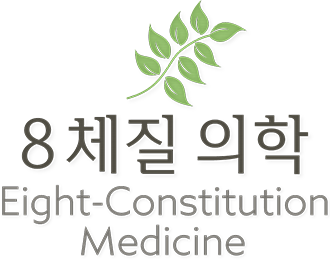Eight Constitutions Pancreotonia
Pancreotonia is a constitution in which pancreas and stomach are proportionally strong while kidney and bladder/uterus are proportionally weak.
Foods that support the pancreas and stomach are generally chicken, apples, ginseng, oranges, spices. Such foods can overstimulate the strong organs (pancreas and stomach). The strong organs have a regulatory role over the weaker organs; thus, overactivity of the strong organs can subsequently lead to further suppression of their antagonists, the weaker organs (kidney, bladder/uterus).
As a result, the originally weak kidney, bladder/uterus becomes proportionally weaker, causing the relational discrepancy between the strong organs (pancreas and stomach) and weak organs (kidney, bladder/uterus) to increase, creating a state of excess imbalance. This causes the relational support between all organs and interactions to change; the immunity achieved a state of appropriate imbalance becomes weakened and compromised, allowing clinical pathology to arise.
For example, fatty liver, arthritis, bacterial/viral infections, allergic dermatitis, peptic ulcers, gout, hypertension, depression can arise when strong organs— pancreas and stomach become overactive. e. If an unhealthy state persists in this constitution, the patient may be prone to diabetes and its many complications as well as cardiovascular diseases.
Individuals with Pancreotonia tend to be very positive, easily take initiative and are naturally hardworking(diligent). They’re emotionally intelligent, empathetic, and thoughtful. They enjoy leading and taking initiative in areas of interest to them. They have a naturally high appetite and enjoy eating. However, if they are having difficulty eating in moderation or showing signs of impatience and emotional lability, this may be indicative that their health is being compromised. Signs of indigestion, fatty liver and high blood pressure may suggest that the individual is very vulnerable to diabetes. Therefore, it is imperative to follow their constitutional dietary regimen.
To prevent overactivity of the strong organs (pancreas and stomach) and lead a healthy lifestyle, Pancreotonia must avoid spicy foods and attempt to maintain a calm demeanor.
The above are not absolute characteristics, but general tendencies of Pancreotonia.
Excessive appetite or impatience is usually related to strong pancreas and stomach heat, so it is recommended to refrain from hot & spicy foods, chicken, apples, oranges, and other foods that do not fit your constitution. A glass of cool water is beneficial right after you wake up in the morning. Avoiding overeating and hot, spicy foods, and attempting not to rush while maintaining a relaxed mind at all times is critical for maintaining your health.
| HARMFUL REGIMEN | BENEFICIAL REGIMEN |
|---|---|
| chicken (including broth), turkey, goat meat, duck meat, brown rice, glutinous rice, red pepper, pepper, mustard, cinnamon, ginger, green onion, onion, curry, turmeric, etc. all hot & spicy foods, seaweed, kelp, apple, tangerine, orange, lemon, mango, sweet potato, taro, bellflower, burdock, honey, plum, jujube, ginseng, red ginseng, sesame oil, tomato, walnut, chestnut pine, ginkgo, sunflower seed, antibiotic, frequent cold baths | pork, beef, egg, white rice, barley, buckwheat, mung bean, wheat flour food, soybean, adzuki bean, most green leafy vegetables, radish, carrot, lotus root, most ocean fish and seafood & shellfish, freshwater fish, persimmon, pear, melon, watermelon, pineapple, strawberry, banana, ice (cold water), aloe vera, hot bath |

